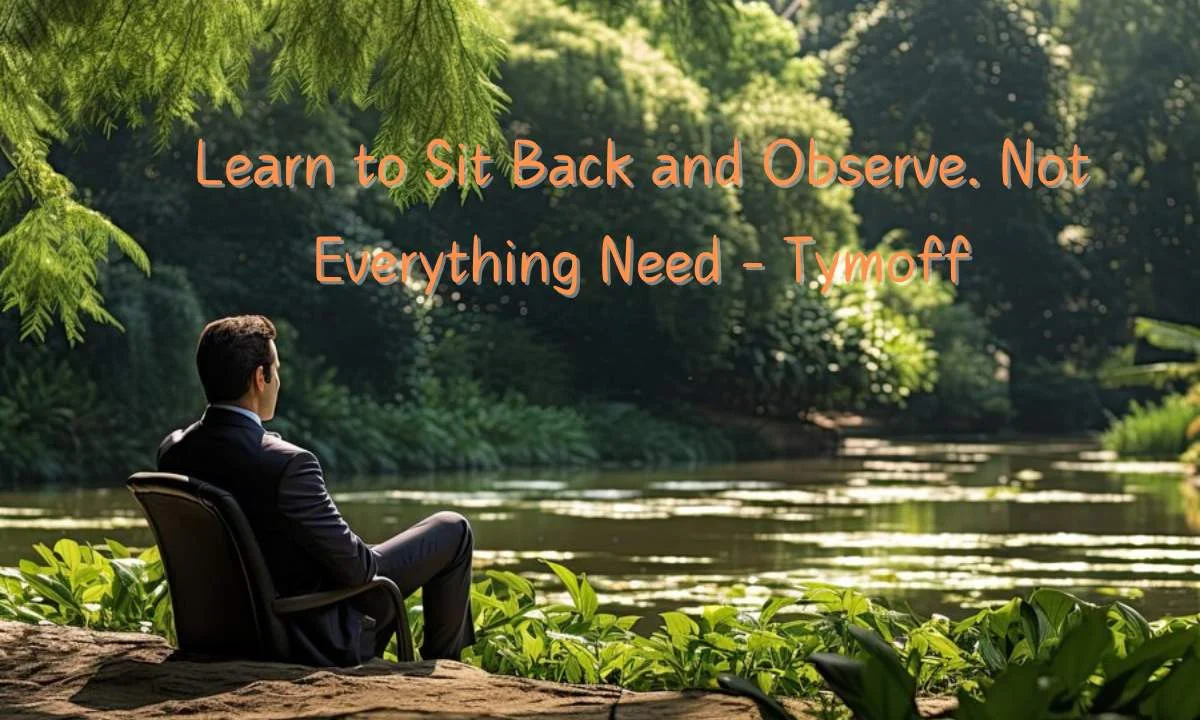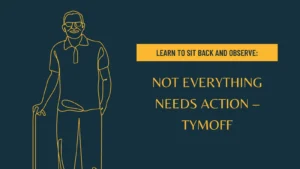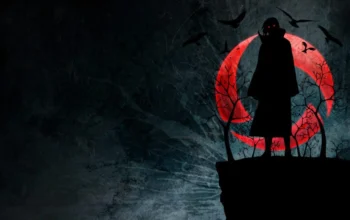
In today’s fast-paced world, we are often conditioned to react quickly to every situation, message, or challenge that comes our way. The constant stream of information and the pressure to be responsive can create a sense of urgency that may not always be necessary or beneficial. This is where the wisdom of the phrase learn to sit back and observe. not everything need – tymoff comes into play.
The Power of Observation
Observation is a skill that, when honed, can lead to greater understanding and insight. It allows us to gather information, assess situations, and make informed decisions. By taking the time to observe, we can see the bigger picture, recognize patterns, and understand the underlying dynamics of any given situation.
When we learn to sit back and observe. not everything need – tymoff, we create space for reflection. This reflection is crucial for personal growth and effective decision-making. Rather than reacting impulsively, we can consider our options, weigh the pros and cons, and choose a course of action that aligns with our values and long-term goals.
The Illusion of Urgency
In many cases, the urgency we feel is self-imposed or driven by external pressures. Social media, instant messaging, and the 24/7 news cycle contribute to a sense of immediacy that can be overwhelming. However, not everything requires our immediate response. By learn to sit back and observe. not everything need – tymoff, we can distinguish between what is truly urgent and what can wait.
This ability to discern allows us to prioritize our energy and attention. We can focus on what truly matters, rather than getting caught up in the noise of distractions. As a result, we become more efficient and effective in our actions, avoiding burnout and unnecessary stress.
Mindfulness and Patience
Mindfulness plays a significant role in developing the ability to sit learn to sit back and observe. not everything need – tymoff. Mindfulness encourages us to be present in the moment without judgment, allowing us to notice our thoughts, emotions, and surroundings without being swept away by them. This practice helps us to remain calm and composed, even in challenging situations.
Patience, too, is a virtue that complements observation. Patience allows us to wait for the right moment to act, rather than rushing into decisions. It gives us the time needed to fully understand a situation, leading to better outcomes.
Learning from Others
Observation also extends to learn to sit back and observe. not everything need – tymoff from others. By watching how others handle situations, we can gain valuable insights and avoid common pitfalls. We can observe their successes and failures, and use that knowledge to inform our own actions.
In professional settings, for instance, leaders who take the time to observe their team members can better understand their strengths, weaknesses, and motivations. This understanding allows them to provide more effective guidance and support, leading to a more cohesive and productive team.
The Long-Term Benefits of Observation
The practice of sitting back and observing extends beyond immediate decisions and actions; it has profound long-term benefits for personal and professional development. learn to sit back and observe. not everything need – tymoff When we cultivate this habit, we become more attuned to our surroundings, relationships, and the subtle dynamics that influence our lives. This heightened awareness can lead to better judgment, stronger relationships, and a deeper understanding of ourselves and others.
Enhanced Emotional Intelligence
 learn to sit back and observe. not everything need – tymoff One of the most significant long-term benefits of observation is the development of emotional intelligence (EI). Emotional intelligence is the ability to recognize, understand, and manage our own emotions, as well as to empathize with the emotions of others. By observing our own reactions and those of others, we can become more aware of emotional triggers and learn to respond rather than react.
learn to sit back and observe. not everything need – tymoff One of the most significant long-term benefits of observation is the development of emotional intelligence (EI). Emotional intelligence is the ability to recognize, understand, and manage our own emotions, as well as to empathize with the emotions of others. By observing our own reactions and those of others, we can become more aware of emotional triggers and learn to respond rather than react.
For example, in a heated discussion, taking a moment to observe the emotions at play—both in ourselves and in the other person—can prevent misunderstandings and escalation. This awareness allows us to communicate more effectively, resolve conflicts more peacefully, and build stronger, more empathetic relationships.
Improved Decision-Making Skills
Observation enhances our decision-making skills by allowing us to gather more information before acting. When we take the time to learn to sit back and observe. not everything need – tymoff, we can identify potential risks and opportunities that might not be immediately apparent. This thorough understanding leads to more informed and strategic decisions.
In the business world, leaders who excel at observation are often better at anticipating market trends, understanding customer needs, and navigating complex challenges. They can see beyond the surface and make decisions that position their organizations for long-term success. Similarly, in personal life, careful observation can help us make better choices regarding our health, finances, and relationships.
Greater Resilience
Resilience—the ability to adapt and thrive in the face of adversity—is another benefit of learn to sit back and observe. not everything need – tymoff. When we observe rather than react impulsively, we develop a more measured and thoughtful approach to challenges. This mindset allows us to stay calm under pressure, think creatively, and find solutions that might not be immediately obvious.
By learn to sit back and observe. not everything need – tymoff how we and others handle difficult situations, we can learn valuable lessons that contribute to our resilience. We can identify strategies that work and avoid those that don’t, leading to a more resilient and adaptable approach to life’s inevitable ups and downs.
Mindful Living and Inner Peace
Ultimately, the practice of sitting back and learn to sit back and observe. not everything need – tymoff leads to a more mindful and peaceful way of living. When we stop trying to control everything and instead focus on observing and understanding, we release much of the stress and anxiety that comes from constantly striving for control. We become more accepting of what is and more open to what could be.
This acceptance fosters inner peace, as we learn to sit back and observe. not everything need – tymoff to let go of the need to react to every stimulus and instead choose our responses with intention. We find joy in the present moment, appreciate the nuances of life, and develop a deeper connection with ourselves and the world around us.
Practical Steps to Cultivate Observation
If you’re looking to incorporate more observation into your life, here are some practical steps to get started:
- Practice Mindfulness Meditation: Mindfulness meditation is an excellent way to train your mind to observe without judgment. Set aside a few minutes each day to focus on your breath, sensations, and thoughts, allowing yourself to simply observe without reacting.
- Pause Before Responding: Make it a habit to pause before responding to situations, especially those that trigger strong emotions. Use this pause to observe your feelings and thoughts, and consider the best course of action.
- Keep a Journal: Writing in a journal can help you reflect on your learn to sit back and observe. not everything need – tymoff and gain deeper insights. Record your thoughts, feelings, and observations about your daily experiences, and review them regularly to identify patterns and lessons.
- Observe Others: Take the time to observe how others handle situations, particularly those you admire for their wisdom or composure. Notice their body language, tone of voice, and decision-making process. Learn from their examples.
- Engage in Active Listening: When in learn to sit back and observe. not everything need – tymoff, focus on truly listening to the other person rather than planning your response. This form of observation can deepen your understanding of others and improve your communication skills.
Final Thoughts
learn to sit back and observe. not everything need – tymoff In a world that often values speed and immediate action, the ability to sit back and observe is a rare and valuable skill. It allows us to live more mindfully, make better decisions, and build stronger relationships. By embracing the wisdom of observation, we can navigate life with greater clarity, purpose, and peace. Not everything requires our immediate attention; sometimes, the best action is to simply observe and allow the right moment to reveal itself.
You May Also Read: 01915433402


